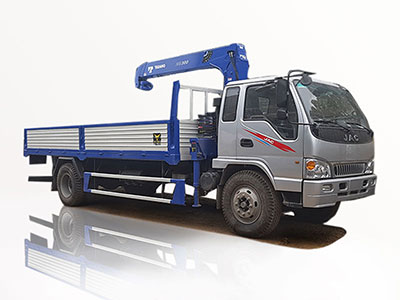Choosing the right dumpster can make a big difference in your waste management needs. Whether you’re a contractor managing a construction site or a homeowner tackling a major renovation, new dumpsters can provide the efficiency you need. This article delves into everything you need to know when looking for new dumpsters for sale, from types and sizes to pricing and tips for maintenance.
Understanding Dumpsters: Types and Sizes
Before you purchase a new dumpster, it’s crucial to understand the different types and sizes available. This knowledge will help you select the perfect dumpster for your specific needs.
Types of Dumpsters
- Roll-Off Dumpsters: Best for large projects such as construction or extensive home renovations.
- Front-Load Dumpsters: Ideal for commercial purposes like restaurants and retail stores.
- Residential Dumpsters: Smaller options are perfect for home cleanouts and yard waste.
Sizes of Dumpsters
Dumpsters come in various sizes, typically ranging from 10 to 40 cubic yards. Here’s a quick breakdown:
| Size (Cubic Yards) | Best Used For | Average Weight Limit |
|---|---|---|
| 10 | Small cleanouts | 2 tons |
| 20 | Medium renovation projects | 4 tons |
| 30 | Large construction projects | 6 tons |
| 40 | Commercial and industrial use | 10 tons |
Where to Buy New Dumpsters
Finding the right place to buy your new dumpster is key to getting the best price and service. Here are several options to consider:
- Local Waste Management Companies: Often have a variety of dumpsters for sale at competitive prices.
- Online Retailers: Websites like Amazon or Home Depot may offer new dumpster sales.
- Dedicated Dumpster Manufacturers: Companies that specialize in making dumpsters often offer the best prices for bulk purchases.
Cost of New Dumpsters
The price of a new dumpster varies based on size, type, and location. Generally, you can expect to pay the following:
| Size (Cubic Yards) | Average Price Range ($) |
|---|---|
| 10 | $200 – $500 |
| 20 | $300 – $600 |
| 30 | $400 – $800 |
| 40 | $500 – $1,200 |
Factors to Consider When Buying a New Dumpster
When purchasing your new dumpster, it’s essential to keep in mind several factors that could influence your choice.
Material
The material of the dumpster affects its durability and usability. Most dumpsters are made from steel, which is strong but can rust, while plastic dumpsters are lighter but may not handle heavy waste effectively.
Weight Capacity
Each dumpster has a weight limit. Be sure to choose a dumpster that can handle the weight of your intended load to avoid additional fees.
Brand Reputation
Research the brands and manufacturers. Trusted brands often provide warranties and better customer support.
Tips for Efficient Dumpster Use
Ensure that you use your new dumpster effectively to maximize its efficiency and benefit. Here are some helpful tips:
- Sort Waste: Separate recyclables and hazardous materials before placing them in the dumpster.
- Don’t Overfill: Follow weight limits to avoid extra charges.
- Leverage Rental Options: If you don’t want to buy, consider renting a dumpster for short-term projects.
Maintenance and Care
Taking care of your dumpster can prolong its life. Below are some maintenance tips:
- Regular Cleaning: Keep the dumpster clean to avoid odors and pests.
- Inspect Regularly: Regularly check for damages, rust, or wear.
- Avoid Excessive Weight: Ensure you do not exceed the weight limit.
Environmental Impact of Dumpsters
Using dumpsters can have significant environmental implications. Proper waste management contributes to recycling efforts and reduces landfill overflow.
Recycling Opportunities
Many new dumpsters come with easy segregation options for recyclables. Consider adding a recycling dumpster alongside your regular dumpster to promote sustainable practices.
Reducing Landfill Waste
By using dumpsters effectively, you prevent unnecessary waste from heading to landfills. Research the recommended disposal methods for different materials.
Choosing the Right Dumpster for Your Project
Your choice of dumpster should depend on the scope of your project. Here’s a practical guide:
- For Home Renovations: A 20 cubic yard dumpster is usually sufficient.
- For Construction Sites: Consider a larger option (30 to 40 cubic yards) to handle heavy materials.
- For Yard Waste: A 10 cubic yard dumpster works great to collect yard debris.
FAQs About New Dumpsters for Sale
What should I consider when choosing a new dumpster?
Consider the size, type, weight capacity, material, and your specific project needs before making a purchase.
Can I rent a dumpster instead of buying one?
Yes, renting is a great option for short-term projects or if you only need a dumpster once.
How can I clean my dumpster?
Use a mixture of soap and water. For tougher stains, consider using a pressure washer.
What types of waste can I put in a dumpster?
Most dumpsters can handle construction debris, household waste, and yard waste, but hazardous materials should be disposed of differently.
Are there weight limits on dumpsters?
Yes, each dumpster has a specified weight limit. Exceeding this limit can result in extra fees.
What are the benefits of using a new dumpster?
New dumpsters offer better durability, efficiency, and often come with warranties for peace of mind.





